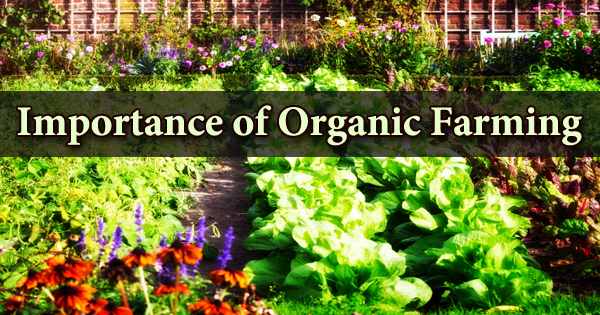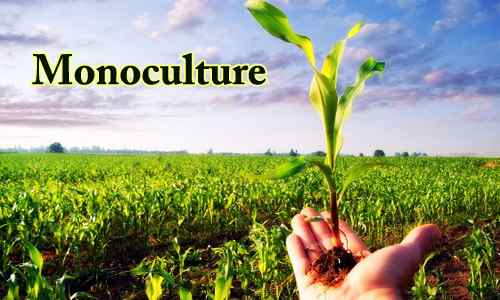Organic farming stresses the use of solely biological resources and bio-fertilizers to provide nutrients for crop growth in a pollution-free and environmentally beneficial manner. It is characterized as a production system that can prevent or significantly reduce the usage of pesticides, synthetic fertilizers, livestock feed additives, and growth regulators. Crop residues, green manure, pest weeds, crop rotations, off-farm organic wastes, legumes, biological pest control insects, animal manures, and other factors are all important in a flexible organic farming system. All artificial chemicals are avoided in pure organic farming. All fertilizers and herbicides used in this agricultural procedure are derived from natural sources such as bone meals or blood meals. To meet ecological requirements and expectations, integrated organic farming includes pest management and nutrition management. Furthermore, concerted efforts are being made through progressive research in different agriculture institutes to improve integrated farming, which has resulted in the widespread use of integrated farming methods such as crop rotation, double and triple cropping systems, and farmers have been able to increase their income over time through integrated organic farming. Organic agricultural methods are frequently adopted in underdeveloped nations, owing to economics and a lack of chemical supplies. Nonetheless, as a result of years of toxic industrial chemicals, they are becoming commonly accepted concepts in developed countries. Organic farming helps to keep the environment clean and pollutant-free, as well as all of the resources needed to sustain life on this planet. Organic farming provides numerous advantages, including the preservation of the soil’s organic makeup. Furthermore, pesticides are constantly destroying Ozone, as are leakage emissions from numerous tractors, industry, and other sources, which organic farming largely avoids. Organic farmers use the following practices:
- They help to maintain and improve soil fertility, structure, biodiversity, and erosion control. They do it by composting dead plants and other organic waste to create their own organic fertilizer.
- They use pesticides, fertilizers, and other chemicals to limit the danger of hazardous effects on humans, animals, and the environment.
- They tailor their farming ways to meet local conditions and market demands.
The green revolution’s technology has resulted in a multi-fold increase in the production of food grains, but it has also raised demands on-farm electricity, water, and fertilizer. The intensive cropping effect has manifested itself in the deterioration of soil tilth and a decrease in organic matter content. Furthermore, organic farming is imported to give people with healthy food. When they ingest organic farming’s produce in the form of healthy food, very few or no chemicals enter their bodies through food, making them less susceptible to severe diseases. Furthermore, due of the natural manures employed in organic farming, the soil remains in better shape and is too productive. Without a doubt, conventional agricultural production in the twentieth century enabled the production of vast quantities of food, as growers began to use motorized equipment, chemical fertilizers, and pesticides to produce unprecedented quantities of food. Chemical contamination is being exacerbated by excessive amounts of chemical inputs, which is causing soil health to deteriorate further. Furthermore, the increased usage of agrochemicals is causing water pollution and deteriorating healthy atmospheric conditions. It has had an impact on crop output as well as human health. Despite the fact that low crop yields may have an impact on farmers, organic farming is vital for people to live a natural existence while maintaining ecological and environmental balance for future generations. People today consume items that have been processed to the point where they do not offer the body with the nutritional, energy, or health requirements that it need to stay healthy. We are all aware that food processing is currently the leading cause of an increase in the occurrence of numerous ailments, and we have no idea how many dangerous particles we are introducing into our bodies. The only way to prevent ingesting these toxins is for every country in the world to support increased investment in eco-food production. Given the current situation, in which the soil in our agriculture fields is deteriorating owing to the overuse of chemical fertilizers, organic farming may be the best approach to replenish Mother Earth with all of the natural nutrients needed for a healthier human population.













